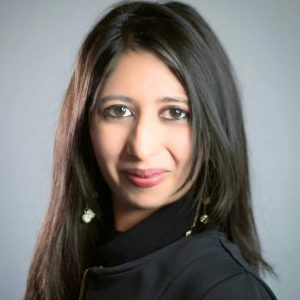WiPiSA @ SAIP
SAIP 2025
SAIP 2024
Abstract:
Capacity Building as a Driver for Women’s Retention in Physics: Prospects on Mentorship, Advocacy and Support Networks
Raesibe Sylvia Ledwaba1
1 Materials Modelling Centre, University of Limpopo, Private Bag x 1106, Sovenga, 0727, South Africa
Capacity building is at the pinnacle of providing the next generation of young scientists with a clear career direction toward becoming physicists. The widespread implementation of universal programs to spark interest in physics-related careers has contributed to an increase in the number of women pursuing STEM-related disciplines in higher education. Narrowing it down to physical sciences presents an even bigger challenge given the intricacy and numerous challenges associated with the subject’s broad classification. Unlike other STEM-related occupations, pursuing an undergraduate degree in physics does not always provide a clear career path. Hence there is a necessity for building capacity to provide a solid foundation for aspiring physicists.
This talk will give prospects on the value of mentorship, support networks, and advocacy; all crucial tools for enabling young women to pursue careers in physics and recognize their value to the scientific community. These strategies have been successful as they support balancing work and family responsibilities, enabling women to conduct research in conducive environments, and mostly capitalize on women’s innately collaborative nature rather than individualistic in work environments.
Sustainable retention methods have been created by Women in Physics in South Africa (WiPiSA), with support from national funding sources and external sponsors. This talk will highlight some of the continuing human capital retention initiatives in which mentorship, advocacy, and support networks are coordinated and have resulted in the growth of Women in Physics in South Africa.
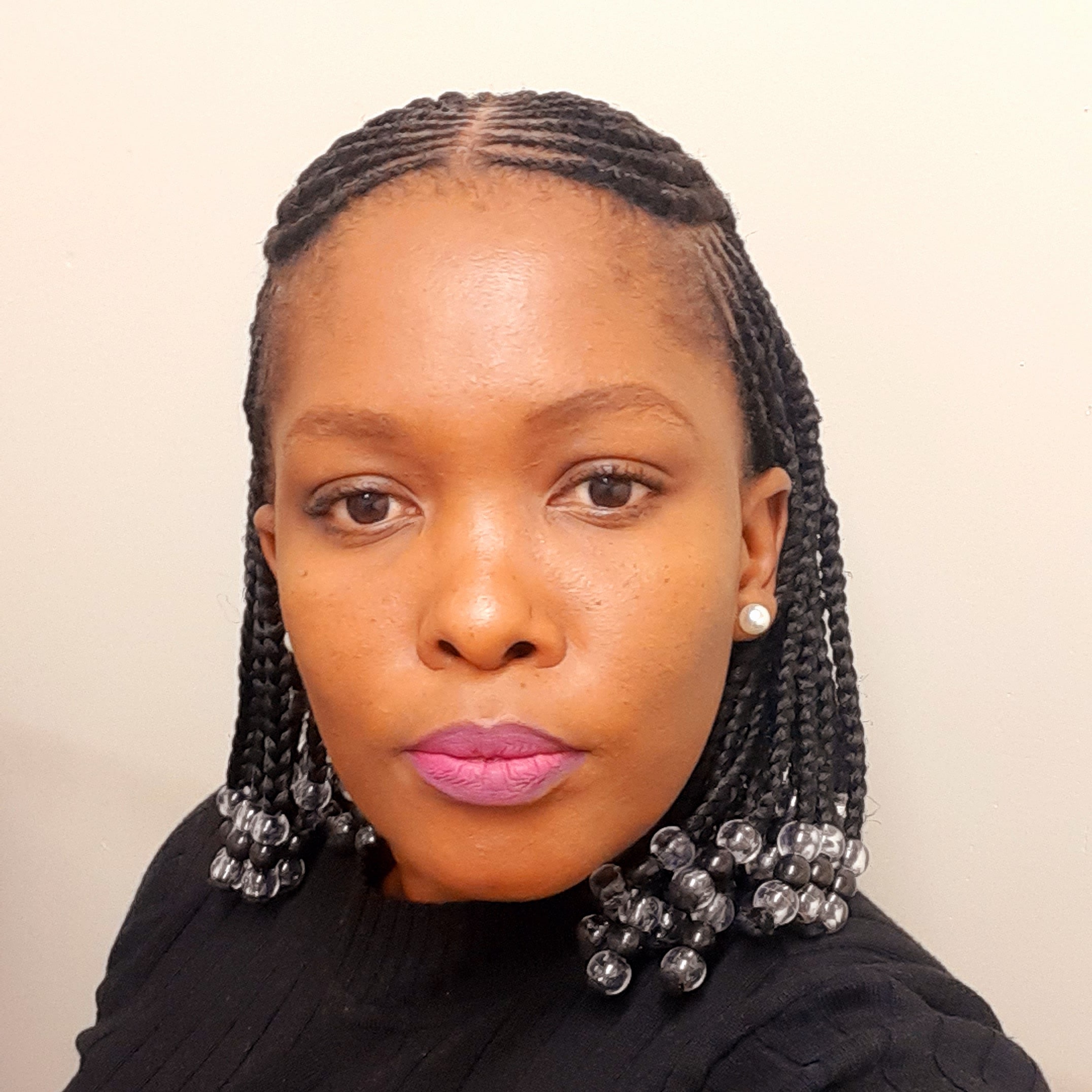
Raesibe Sylvia Ledwaba is an Associate Professor of Physics at the University of Limpopo based at the Materials Modelling Centre. She has been a well-rounded young scientist involved in research, teaching, and community engagement programs. She holds a PhD in Physics, which was awarded by the University of Limpopo specializing in computational modelling of materials. Her doctorate in Physics was a joint effort between the University of Kent (United Kingdom) and the University of Limpopo. Her research work spans several components of energy storage materials including; cathodes, anodes, electrolytes, and hydrogen energy. She was a beneficiary of the ESRC-NRF Newton collaborative research fund for her PosDoc vocational training at the University of Southampton. She was later awarded the NRF Thuthuka Grant for the years 2020–2022, based on a novel research concept that was aimed at developing All Solid State Battery Technology (ASSB) by using machine learning and multiscale modelling techniques. As part of her work at the University of Limpopo, she oversees research projects and teaches modules for the Postgraduate Diploma in Science Communication, which is the first program of its kind in Africa and an initiative of the Department of Science and Innovation.
To date, she has published 20 research articles and her research work has been read at over 100 international and local conferences. She has supervised three (3) doctoral, seven (7) M.Sc., and five B.Sc. (Honours)/PGDip students to completion. She currently supervises three PhD (3) and three (3) M.Sc. students. In addition, she has assessed several postgraduate theses, served as a peer reviewer for journals, chaired sessions, and adjudicated for student prizes at conferences. Prof Ledwaba is a recipient of several accolades including being honoured as one of the Inspiring Top 50 Women in Science, Technology, Engineering, and Mathematics (2019) by the Embassy of Netherlands and listed amongst the Mail and Guardian 200 Young South Africans, in the Science and Technology Category (2017). One of her outstanding professional achievements was being selected as one of the users to assist in the commissioning of the Petascale supercomputer at the Centre for High Performance Computing (CHPC) in June 2016. In July 2017, she represented South Africa at the BRICS Young Scientist Forum in China, having been nominated as one of the top 10 young scientists by the Department of Science and Innovation (DSI) and the Academy of Science of South Africa (ASSAf). During the same year, she was also nominated to represent South Africa as the country’s team leader at the International Conference for Women in Physics (ICWIP) in Birmingham, United Kingdom. In 2018- 2021, I was the Chairperson for Women in Physics in South Africa (WiPiSA), Chairperson of the University of Limpopo Womens Academic Solidarity Association (ULWASA) in 2018, and a founding member of Women in High-Performance Computing (WHPC-SA). She continues to engage in public awareness initiatives of STEM-related careers working to promote science engagement through several programs, which include facilitating workshops, planning school visits, and showcasing careers.
SAIP2023
Abstract
“What is like to be a woman in Physics: Life-Experiences, Success, and Challenges.”
DSI/CSIR National Centre for Nanostructures and Advanced Materials, Council for Scientific and Industrial Research, Pretoria, 0001
In general, physics, math, and science are regarded as foundational subjects, and hence studying them opens doors to a wide range of opportunities, including scientific research while stimulating your mind. Often time, many physicists care about improving the success of women in physics, however, research on effective intervention strategies has been insufficient. In fact, reports have revealed that the percentage of women in post-graduate physics positions has stalled at just below 20% internationally and this is one of the most pressing concerns around the world [1].
Global surveys conducted by The American Institute of Physics where they tracked down participation and representation of women in physics revealed unequal resource distribution and parenting to have long-term effects on women’s careers [2]. Despite, women have made significant contributions to applied physics research and development, hence their participation is of significance to continued progress [3].
Furthermore, as a woman working in the discipline of Physics for the past 17 years, there has been a slight change in attitudes towards women. For instance, the research institutes as well as universities are very aware of the need to support and promote women pursuing their careers in this discipline. Various programs to support women with a mentoring and leadership focus are implemented and their impact is being recognized. This do help shift attitudes otherwise the numbers of women in STEM would have dropped even more over the last decade. On another note, even though our mindset is changing, we are hitting a wall considering that we are mostly working in our confined spaces and yet one of the keys to progress and breakthroughs is collaboration. In fact, the greatest scientific outcome and impact is done when we incorporate people with many different passions and perspectives.
References
1. B. Abad et al.; The 2022 applied physics by pioneering women: a roadmap, J. Phys. D: Appl. Phys. 56 (2023) 0730001
2. R. Ivie and C.L. Tesfaye; Women in physics: a tale of limits, Phys. Today 65 (2012) 47– 50
3. R. Skibba; Women in physics, Nat. Rev. Phys. 1 (2019) 298–300
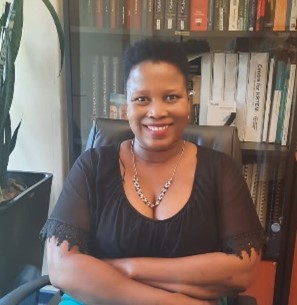
Prof. Gugu Mhlongo joined the CSIR_ Centre for Nanostructures and Advanced Materials (CeNAM) in 2007 under CSIR PhD studentship programme in collaboration with the University of the Free State (UFS). She completed her PhD degree in record time and was the first black female to graduate with PhD in Physics department at UFS in 2011. At present, Prof. Gugu Mhlongo is employed as a principal researcher appointed as an acting research group leader for gas sensor group and a project leader for gas nanosensors for food safety platform existing within the gas sensor group. Before she resumed this role, from 2017 to 2019 she was acting as the characterization facility manager at CeNAM which is mainly focused at providing characterization support to the nanotechnology community, and others including researchers from universities and other public research institutions, as well as industry. Prof. Gugu Mhlongo is also appointed as an Affiliated Associate Professor at the University of the Free State at the Physics department.
She has conducted tremendous work on novel advanced and functionalized nanostructured materials for nanosensor development. This is an important area in the nanomaterials sciences considering the high demand for gas sensors for food safety, environmental monitoring as well as disease diagnosis. Although she has wide interests, thus far, her main focus has been on magnetic, defect structure control and luminescence properties i.e., down-conversion and up-conversion studies of nanomaterials for energy applications, in which she has developed expertise over the past few years of research. For the past two years, the impact on knowledge generation on her field of research that she has made has been noticed at an international level. She has published more than 50 papers and 5 conference proceedings (as a first, corresponding and co-author), co-authored 2 book chapters. Currently having h-index of 26. She has presented some of her research work as a guest, invited and keynote speaker in more than 20 local and international conferences.
SAIP2022
Abstract:
Women in STEM: a perspective from the Global South
Almost everywhere in the world, women constitute a minority in the STEM workforce. A frequently misconception is that the number of women in STEM is particularly low in the Global South. In fact, on plotting the percentage of women in the STEM workforce of a nation versus its per capita income PPP, one obtains an inverted U: as a country becomes richer, the percentage of women in STEM rises sharply, then falls slowly. Economically richer and poorer countries also tend to show differ patterns of retention in STEM ; in economically developed countries, the main problem seems to be in attracting girls to studying science, whereas in developing countries, one sees a big dropout among women studying science after the tertiary level. Of course, women in STEM in developing countries have to deal with a lack of infrastructure and resources, and also frequently face societal challenges and biases, both within and outside their countries. One effort to address the problems faced by women physicists in the developing world is the Career Development Workshops for Women in Physics that have been held since 2013 at the ICTP in Trieste, Italy, and also at the new ICTP-EAIFR in Kigali, Rwanda. I will briefly describe the structure of these workshops, and some of their success stories.
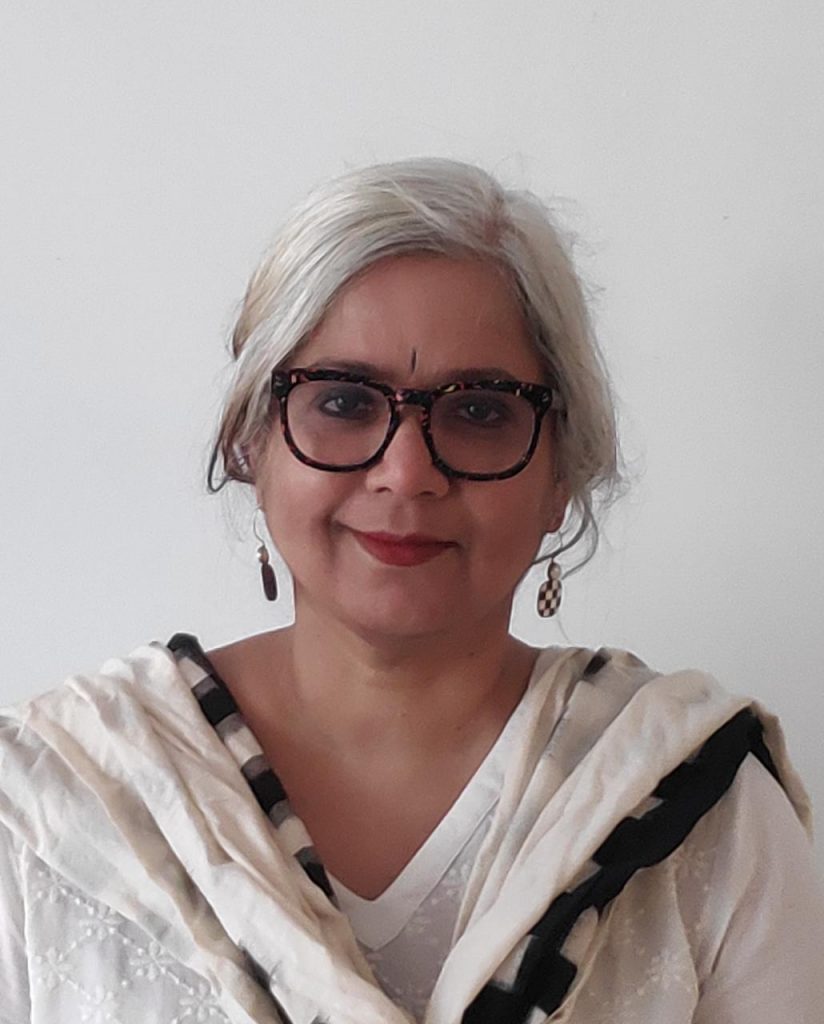
Shobhana Narasimhan grew up on the campus of a scientific institute in Bombay (now called Mumbai). She obtained her BSc from St. Xavier’s College, Bombay, and her MSc from IIT Bombay. She obtained her PhD in physics from Harvard University. After holding postdoctoral positions at Brookhaven National Laboratory, USA, and the Fritz Haber Institut, Berlin, Germany, she returned to India and joined the faculty of the Jawaharlal Nehru Centre for Advanced Scientific Research, Bangalore, where she is currently heads the Computational Nanoscience group, and is a Professor in the Theoretical Sciences Unit.
She has always has a strong interest in promoting women in science: as a student at Harvard, she helped to found the group ‘Women in the Mathematical and Physical Sciences’, and while she was a postdoc at Brookhaven she made the suggestion to the American Physical Society that resulted in the setting up of the “WIPHYS” bulletin board. She was a member of the IUPAP Working Group for Women in Physics. She has been a member of several national committees set up by the Government of India to help women in science, including the National Task Force on Women in Science and the Standing Committee on Women in Science. She is currently chair of the Indian Academy of Science’s Panel on Women in Science. She is also currently an Anna Boyksen Fellow at the IAS, Technical University of Munich; this fellowship is intended for scientists with an interest in gender issues.
She is an International Honorary Member of the American Academy of Arts and Sciences, and a Fellow of the National Academy of Sciences, India, and the Indian Academy of Sciences.
SAIP2021
Abstract
Women in STEM: Improving representation of women in engineering and physics HK Chikwanda, Graduate School of Technology and Management, EBIT, University of Pretoria
The science, technology, engineering and math (STEM) is essential for the improvement of any country’s innovative capacity and global competitiveness. Thus, STEM workforce is important for national development. Women hold an oddly low share of STEM qualifications, particularly in engineering and physics. Globally, women are underrepresented in STEM professions and more so in Engineering and Physics, leaving a gender gap to innovation and untapped opportunity to expand STEM employment in South Africa. There are numerous likely factors contributing to the discrepancy of women and men in STEM careers, including: a lack of female role models, gender stereotyping, and less family-friendly flexibility in the STEM fields. Irrespective of the reasons, there is a definite need to encourage and support women in STEM.
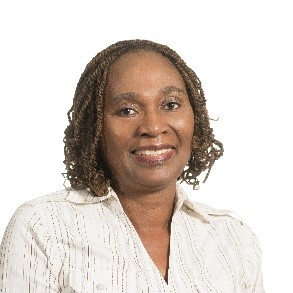
Hilda received her BEng and MEng degrees in Metallurgical Engineering from the Donestk University of Technology. She earned her Ph.D. in Engineering from Imperial College of the University of London.
Her exposure in this field extends to over 30 years. She is an Associate Professor of Engineering and Technology Management in the Graduate School of Technology Management (GSTM) in the Faculty of Engineering Built Environment and Information Technology (EBIT) at the University of Pretoria. Hilda teaches operations management in the honours programme for engineering and technology management (ETM) and engineering management (MEM) and technology and innovation management (TIM) at the master’s level.
She is active in continuous education and has successfully supervised postgraduate students. Her current main area of research is operations management, with a specific focus on continuous improvement and the sustainability of operations, and her research interests include lean thinking, theory of constraints, supply chain, operations strategy and improvement. Hilda has published extensively. She is a chartered engineer and a fellow of the Institute of Materials, Minerals and Mining (IMO3) as well as a member of the Minerals, Metals and Materials Society (TMS). Professor Chikwanda is C2 rate researcher (NRF).
SAIP2019
Abstract
PHYSICS FOR ALL: REBUILDING OUR COMMUNITY FOR EVERYONE
Physics is an objective and precise science. We are careful to not allow our or anyone else’s personal biases, emotions, or cultural influences to effect interpretations of data, characterising the scientific method. However, in the past, and it could be argued still today, we do allow these vices to affect the way we think about the people doing science, be them ourselves or others. This can cause problems for minority groups in physics, such as women, by not only encountering prejudice, and from lack of confidence, but also due to systems that were designed to suit a specific type of scientist, traditionally who are male. There are many other factors that cross-correlate, such as economic background, geographic location, and ethnicity, that have similar battles but manifested in different ways. This talk will explore these issues, with some focus on South Africa, and look to how we can become more scientific, in our approach to people, as we are to our data.
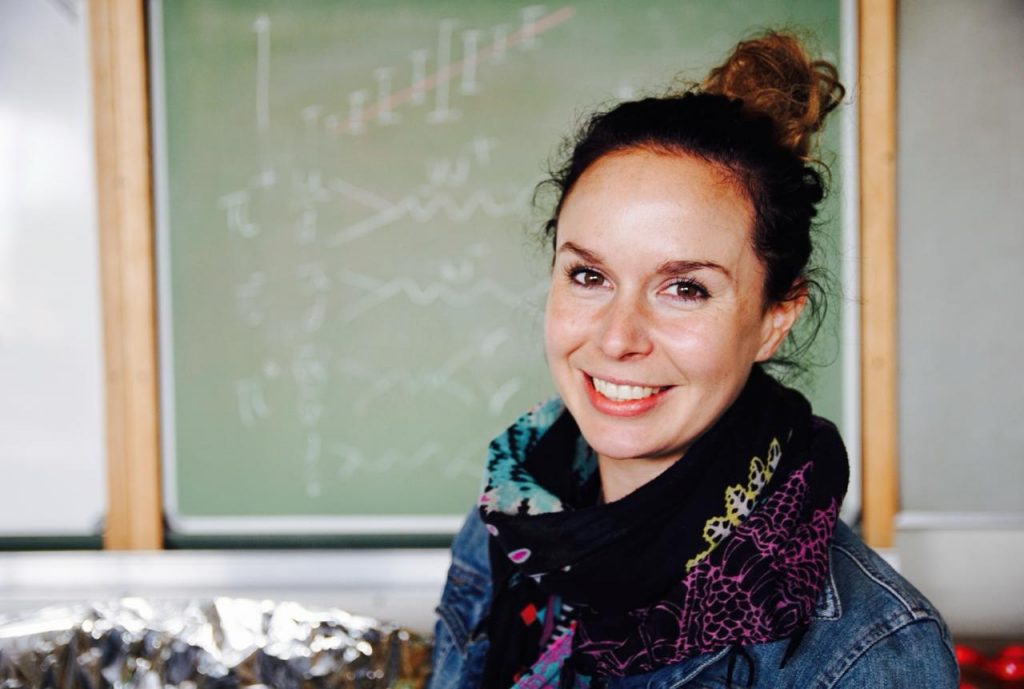
Dr. Kate Shaw is an experimental particle physicist working on the ATLAS experiment at CERN, where her research interests are focused on the physics of the top quark and luminosity determination and calibration. She is lecturer at the University of Sussex, UK, working in the Sussex ATLAS group, and she is a staff scientist at the International Centre for Theoretical Physics (ICTP), Trieste, Italy, where she coordinates the Physics Without Frontiers programme which inspires, trains and educates physics and mathematics students worldwide. Shaw is passionate about physics outreach and public engagement, for which she won the 2015 EPS outreach prize for outstanding achievement, and works to promote diversity in physics
